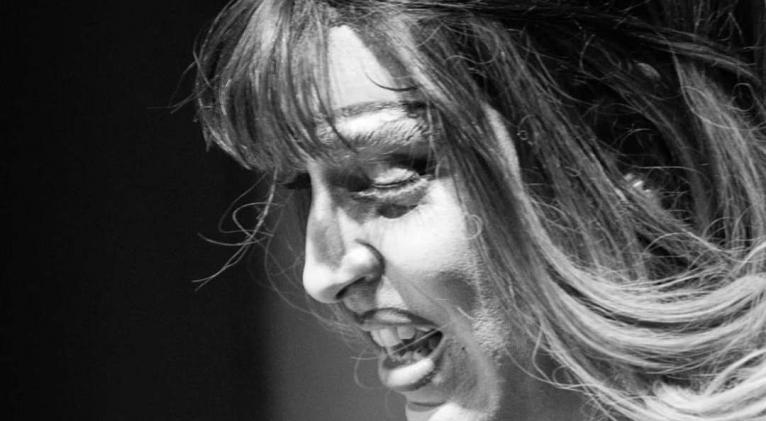Ray Cruz: Fátima Will Always Know How to Land on Her Feet

In less than a year, the popular actor Ray Cruz has added a woman's name to his teacher Manuel, from Entrega, and Miguelito, from Talking to the Dead, to the almost unanimous applause of the public. He has done it from the theater halls, without the complicity of the omnipresent small screen, by touring Cuba with his scenery on his back and a huge desire to multiply Fátima's voice.
—How did Fatima come into your life?
—Fatima came into my life during COVID, that is, at a time when she didn't have much work. Then Ulyk Anello, who had done it before as an actor, asked me if he wanted me to do it as a director. I, on the other hand, had done a lot of theater, but he owed me a one-man show, and that's how it was: at our time, at our own pace, we went to his house, we came to mine, until Fátima, Ulyk's production, premiered. It really was a very nice experience and it was very successful, although I don't think it was as successful as this one, but not because of the staging, but because of the way in which the way the work moved was managed.
—What has been the main challenge that this character has posed to you?
—That she has nothing to do with me and, therefore, she is an unknown world to me, what happens is that I’m always studying: I watched series, movies; for example, Veneno, a Spanish series that was coming out at that time and helped me a lot. I worked in drag bars, in El Divino, and that's how I began to get to know that little world that exists, not only in front of the stage, but behind it, what’s not completely seen, what is hidden and it’s a world that began to capture me. ; in fact, now I have great drag friends, people I admire and respect a lot.
—You have already confronted this one-man show with different audiences, even abroad. What feedback have you had?
—The connection with the public, throughout the island, and even when we were away, in Mérida, Mexico, has been spectacular. I did 50 performance recently in Pinar del Río and I had a great time in all of them. The truth is that, in every sense: good for the public's feedback and good for me as an actor. I tell Claudia, who is the director with me in the production, that Fátima always knows how to land on her feet, even in the wildest, most complicated scenarios, with fewer or more lights, she always gets a standing ovation and very good feedback from the audience. Many viewers from different provinces tell me: I have always respected you as an actor, but this is something else. There’s a very strong level of seriousness in this work, and that speaks a lot about what we are doing with the work. Statistically, if out of 50 performances, 50 reaction memories have been positive, we are on the right track.
—How do you explain Fátima's deep connection with the viewers?
—I think that it has to do with each audience, but also with the respect that Fátima expresses to the viewer from minute zero. Since the voice-over is heard, and instead of being a recorded voice, the one who asks that the phones be turned off and such, it’s Fátima, people begin to connect with the character in a different way. The work begins with two texts, one with four sentences, and then another with seven. In text three, Fátima has 85% of the viewer on this side. Three minutes into the show, Fátima already dominates all the viewers or the vast majority and, with that, she already wins. That's why she begins to gain connection, because after three minutes, I, as an actor, know that if the audience at that moment reacts that way, I can do whatever I want from then on. Until now, it has always worked, but I repeat: starting from respect. We are very respectful and the public notices that and, as they notice it, they let themselves go.

—How many readings and messages does this story contain, beyond a person who feels in the wrong body?
—Fatima is nothing more than a pretext, and this whole wrong body thing is something that hurts her and two or three spectators per show, and the shows get pretty full. It contains many stories, many messages, because what really connects Fátima with the public is that, although you are satisfied with your body, all of us, at some point in our lives, have been dissatisfied with the country in which we live, we have loved a person to the point of doing a thousand crazy things, we love our mother; all of us, or the vast majority, have had our father scold us at some point in a way that hurt us a lot, and if it didn't happen to us, we have a friend, a neighbor, an acquaintance who was beaten or abused by his father. These are points that Fatima touches on and that affect human beings, not only in Cuba, but in the world.
«We had an experience in Mexico that was very favorable, because we thought that none of this was going to connect, but everything connected and, of course, we realized that the feelings are the same, that these are readings useful to everyone, but I repeat: always from respect, study, because we keep on studying, and Fátima in each performance surpasses herself, because I continue to see that there are many things that can vary depending on the audience, but always with a lot of respect, and If I feel that there’s a day when people are more engaged with any of these things I’m telling you, then that day I put more emphasis on that part of the work.
Translated by Amilkal Labañino / CubaSí Translation Staff














Add new comment